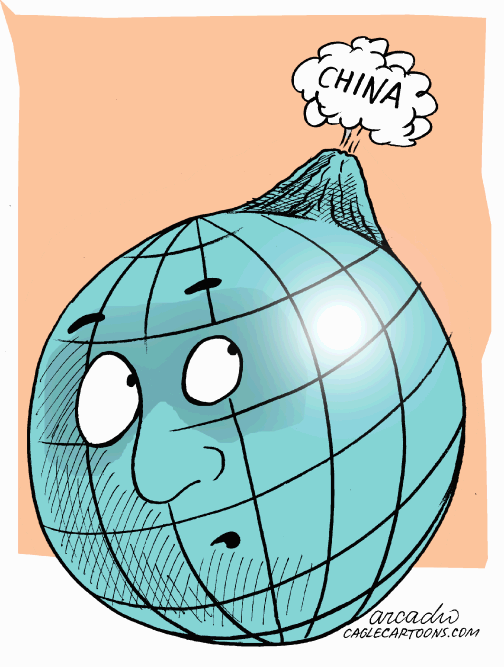Fili’s World did a great primer on Chinese Search Engine Basics and I with his permission I opted to use it as a springboard for this week’s post:
“The SEO rules for the Chinese Internet market are a bit different than that of any other country. The Internet market works differently due to various social, political and technological reasons. It’s quite remarkable that Google has so far failed to take over the Chinese search engine market which is still dominated by Baidu – maybe the only company in the world still beating Google in their niche.”
I consulted with a funds manager in New York about a year ago. He did not want to believe my prediction that Google would NEVER overtake Baidu and would keep losing ground. He expplained to me that Google had outspent Baidu 10-1 on R&D in the Chinese market and doubted Baidu could stand up to that. Gee, if it were only about money.
Baidu succeeds in spite of itself because it is Chinese!! Google shoils have spent a couple of hundred bucks taking to my students who make it really simple to understand: “Baidu has what we need” (mp3 downloads, Chinese language games…) in Chinese without forcing students to dig through the rubble of hard to grasp Google info in English. They don’t care that most of the top ten slots in Baidu are paid ads and are not highlighted as such. And they don’t care that the results may be censored or politically skewed. Google’s honesty policy (clear marking of ads) gets lost in translation. Everything is for sale in China and students and netizens here know it and accept it: you buy everything, cyberspace included, with money, guanxi (relational advantage), or political favors.
“Most of the website’s incoming traffic comes from search engine queries, so Google is extremely important for any site out there that’s interested in getting traffic, and the Internet is full of SEO experts and advice on how to help Google better understand your site, hopefully resulting in higher Google rankings and increased incoming traffic.”
About 95% of SEO companies that I queried in China use Google adwords to get you on the first page of a search engine listing. They know little else beyond that. Because Chinese businesses are not Internet savvy they buy into appearances. Looks are inordinately important here in everything: food, physical attractiveness, website bells and whistles (makes SEO harder that they adore flash heavy sites) and where their site appears. It does not matter to them that you can show them statistics proving only 20% or less of visitors come from the right (paid) side of a search bar.
“Baidu’s dominance in the enormous Chinese online market holds a whole new world of challenges and opportunities for websites. Asking online-colleagues and browsing through the Internet it’s quite surprising how little information is available on the topic in English. Most western SEO professionals I know assume that Baidu’s behavior is just the same as Google’s, but I always felt that’s just the easy response and probably far from the actual truth. I had a chance to rethink this subject when discussing “English Taiwan : The websphere, the blogosphere, traffic, SEO and the need for a profound change” and the lacking connection between the Chinese and English bloggers and blog readers in Taiwan and China. ”
What I am hoping is that this becomes a running discussion between Mark, Fili’s world Gemme, Alex , and OMBW. we all have different strengths and could stimulate a lot of learning and dialogue.
“Content : Baidu is extremely sensitive to some information, so totally avoid mentioning or writing adult content, pornography, or Chinese government forbidden keywords. Having any of those will not only affect the page the content is on but also the entire website.”
My site has been blocked 6/10 times I have checked it this month. I am extraordinarily pro-China, but I cannot seem to always fly under the censor’s radar.
Content description : Naturally, optimize your page title, your headings and keyword density in pages (5-8%), same as Google.
Check your tags with free, simple tools like Submit Express. They will let you know what you need to change and where. Type in my website address for your first analysis as we will use it as a learning tool. This service will also tell you keyword density and frequency (I will do a whole post on that later) and even highlight any negative issues with your outbound links.
Use Chinese words in your title and description tags, but check the length of encoded symbols so you do not exceed acceptable limits. Avoid using the name of your blog or website in the title and description tags unless there is a good reason. Once you are a branded name like Amazon, Boing Boing or (god forbid!) Perez Hilton, and people are actually coming to your site, you can always add it in.
Note that you can always add title and desription tags in your header that are different than what appears on say a wordpress blog. Check out the source code on my site and you will see that it does not match the description (tagline) generated by wordpress.
Google tends to see the title as most important for the engines and the desciption as part of your content while Yahoo and MSN give more weight to the description tag. As an example: I rank higher for the term American Professor (#1 out of 100,000,00 or so…) and lower for SEO CHINA in Google. I am only #25 in Yahoo! for Ameican Professor and #11 for China SEO. In MSN I am in the top 6 for both terms. If this was a blog meant to supplement my income I would need to alter my tags accordingly as American Professors are a dime a dozen (Sorry Chris) while good SEO specialists in China are harder to come by…
“Links : Anchor-texts for incoming links are, like in Google’s case, a very important SEO factor, but it seems Baidu attributes a little more importance to internal anchor-texts. Note that unlike Google, Baidu still doesn’t have a very advanced authority mechanism, so there’s less importance to where your anchor-text is coming from, and you can imagine the consequences of this.”
Ask your friends to place links to your sites, stories and pictures using relevant keywords. The bestest, smartest, and handsomest seo specialist in China is just fine for me, OK? Nothing elaborate.
Make sure for paid text ads that your key words are in the links if possible. And remember that Google, Yahoo! and MSN give extra points for ads on monster sites like theirs. Imagine that: you get more juice by paying the big boys for links…
Jump on the fact that Baidu doesn’t give extra credit to powerful sites because it will not hurt you in the other engines.
Watch your outgoing links carefully: If you looked at my site report in submit express you saw that I have too many outgoing links:
“This page contains too many URLs.
This tag contains 561 urls. Some Search Engines have problems with more than 100 urls on a page. ”
Blogs are always going to read out worse than conventional websites, but be a bit more careful than me. And try to minimize outgoing links to extremely weak sites, or sites that do not return links to you unless you have a good reason to do it. I generally repay sites that link to me in some way: I either add a blogroll link to sites I like or mention them in a post. If you do the same remember that some engines/sites with ranking systems give more power to front page links than buried links and more power to links in posts than to links on blogrolls.
As a rule I don’t give the time of day to sites that are overly stingy about links or credit sharing on their sites. I do have a few listings on my blogroll of sites that may never repay the nod, but they are important reads and should be tauted. But, don’t give away your power to the sites that don’t warrant it via content or elitist attitude just because you think you have to or operate under the illusion that they will one day abandon their ego.
My attitude is simple: we are in this together. Promote the valuable sites and help your friends, big or small, as much as you can without serious injury.
I am only 1/3 through Fili’s article. More soon…
Added Note on the Body Language post:
I showed this in class to non-English majors and they loved it…It provided great entertainment and a jumping-off place for discussion on “authentic” body language issues…
China Cartoons,
China web 2.0,
Chinese Internet,
Chinese Media,
Internet marketing China,
Seach engine Optimization,
Search Engine Marketing,
SEM,
SEO,
Seo China,
The Internet,
中国














